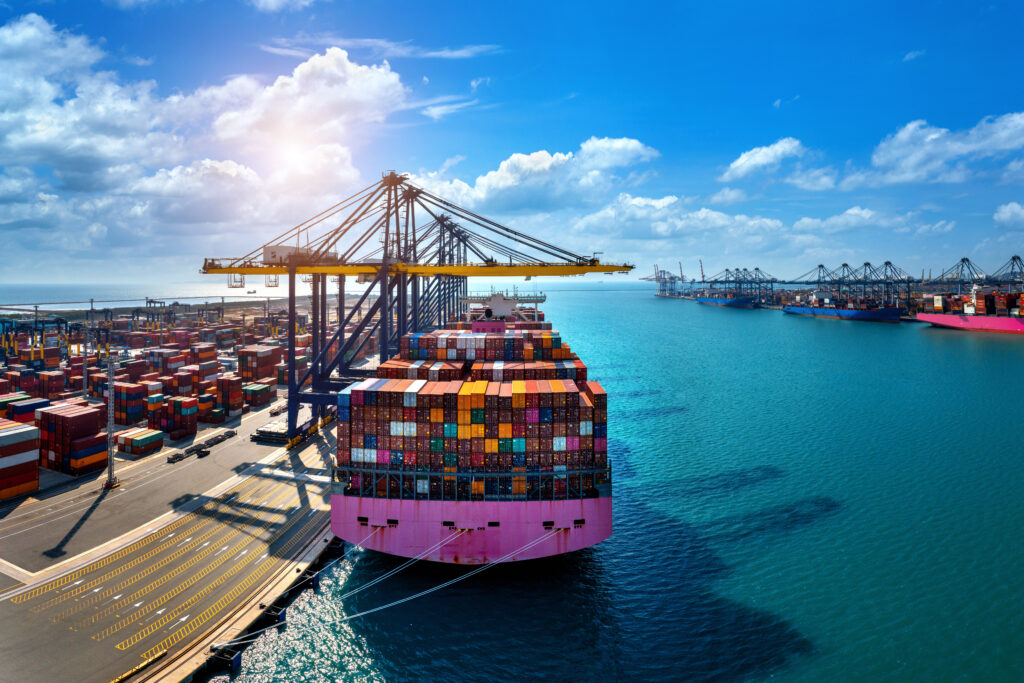International trade is constantly evolving, influenced by economic, technological, and geopolitical factors. In this article, we dive into the latest trends in global trade, unveiling the current dynamics, challenges, and opportunities that shape the global trade landscape.
Digitization and the Expansion of E-commerce
The ongoing rise of e-commerce is one of the most significant trends in international trade. The increasing digitization of commercial transactions has opened new frontiers, allowing businesses to reach global markets from the comfort of their offices. The global pandemic accelerated this trend, highlighting the crucial importance of an online presence for business growth.
The continued rise of e-commerce is one of the most notable trends in international trade. The growing digitization of commercial transactions has opened new frontiers, allowing businesses to reach global markets from the comfort of their office. The global pandemic accelerated this trend, highlighting the crucial importance of an online presence for business growth. E-commerce continues to disrupt international trade, marking an unprecedented shift in the way commercial transactions are conducted. The rapid digitization of trade not only removed geographical barriers but also democratized access to global markets for businesses of all sizes. This digital revolution allows companies to extend their reach far beyond their national borders by leveraging online platforms to reach a global audience while reducing infrastructure costs associated with an international physical presence.
The COVID-19 pandemic played a catalytic role in this transformation, forcing businesses to accelerate their transition to digital. With the closure of physical retail outlets and disruption of traditional supply chains, online commerce became a necessity for the survival of many businesses. This situation highlighted not only the crucial importance of a robust online presence but also the need for effective and agile e-commerce strategies to quickly adapt to market changes.Moreover, the expansion of e-commerce comes with challenges such as data management, cybersecurity, and international logistics, which require innovative solutions. Companies that succeed in overcoming these obstacles while optimizing their online customer experience can not only maintain their competitiveness but also position themselves as leaders in an increasingly globalized business landscape. In summary, digitization and the expansion of e-commerce have become essential pillars of modern international trade, profoundly transforming the way businesses operate and interact with the world.
Sustainability and Corporate Social Responsibility (CSR)
Sustainability and corporate social responsibility (CSR) have evolved to become essential imperatives in the landscape of international trade. This trend reflects the growing importance of environmental, social, and ethical concerns among consumers, regulators, and stakeholders.
Companies are increasingly under pressure to adopt more sustainable business practices. Consumers, increasingly aware of the environmental and social impact of their purchases, prefer brands that demonstrate a commitment to sustainability. This translates into a growing demand for environmentally friendly products, ethical supply chains, and responsible business practices.
Regulators and governments are also strengthening requirements for sustainability and corporate social responsibility. Environmental standards and regulations are becoming stricter, prompting companies to reduce their carbon footprint, adopt clean technologies, and integrate ethical practices into their operations.
In response to these pressures, many companies are now integrating sustainability and CSR at the heart of their business strategies. They implement initiatives such as waste reduction, the use of renewable energy, the adoption of environmentally friendly production processes, and the implementation of social programs that benefit local communities.
These sustainable practices are no longer just a distinguishing feature; they also help strengthen brand reputation. Companies that adopt ethical and sustainable practices enhance their credibility and gain consumer trust. Transparency and accountability in their operations become essential assets for establishing and maintaining strong relationships with customers.
Thus, sustainability and CSR are no longer options but imperatives for companies operating on the international stage. Integrating these practices into their business activities has become a crucial element for remaining competitive, attracting modern consumers, and contributing to building a more sustainable future.
The emerging trends in international trade reveal a constantly transforming commercial landscape, influenced by major economic, technological, and societal forces. The increasing digitization, the expansion of e-commerce, globalization, and the focus on sustainability and corporate social responsibility are redefining how companies operate globally.
The shift towards e-commerce offers unprecedented opportunities for businesses to reach global markets and diversify their revenue sources. Glocalization allows for adaptation to local needs while maintaining global reach, fostering closer relationships with consumers. At the same time, the growing commitment to sustainability and CSR reflects a growing desire to meet the expectations of consumers and regulators regarding ethical and responsible practices.
These trends have shaped a business environment where innovation, adaptability, and social responsibility play a central role. Companies that manage to seize these opportunities and navigate these challenges can not only remain competitive in the global market but also contribute to shaping a more sustainable and ethical future for international trade.
To thrive in this constantly evolving environment, companies must continue to monitor these trends, quickly adapt to changes, and integrate sustainable practices into their operations. By adopting a proactive approach, they can not only take advantage of the opportunities offered by these trends but also contribute to the positive evolution of international trade towards a more ethical, inclusive, and sustainable economy.

